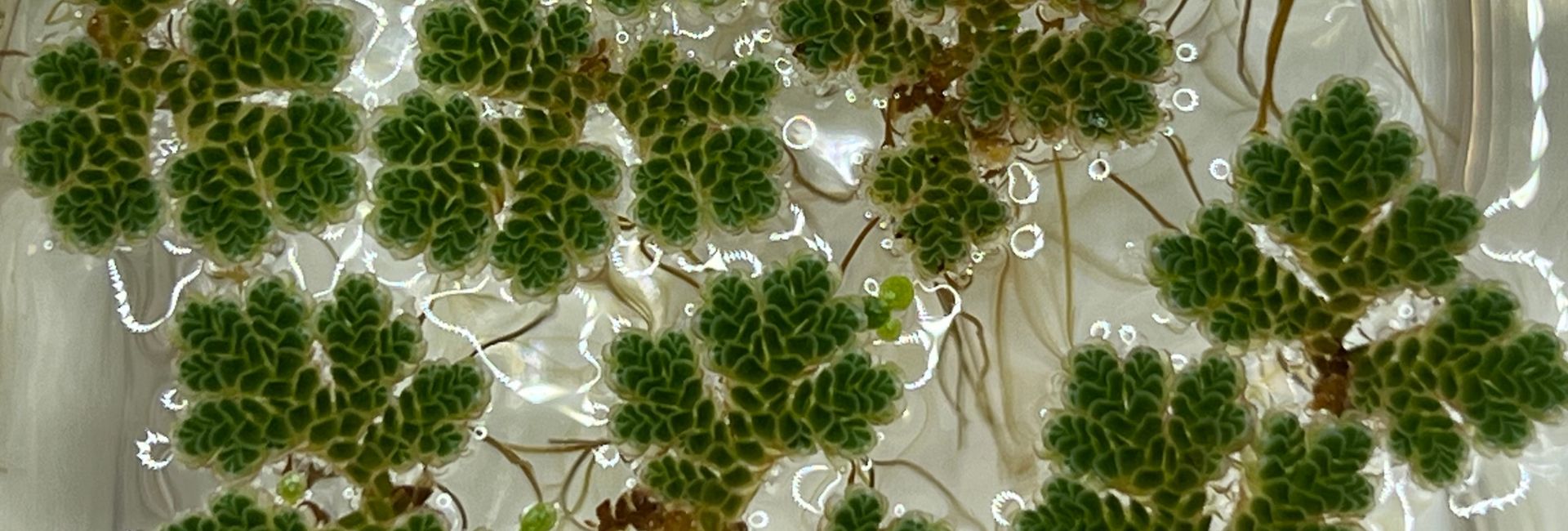Azbio Project
The Azbio Project
Funded by Science Foundation Ireland and the Environmental Protection Agency through the SFI-IRC Pathway Award Programme, the four-year Azbio (Azolla-Bioreactor) project is hosted by the School of Biological, Earth and Environmental Sciences, along with the Environmental Research Institute, at University College Cork.
The Azbio (Azolla-Bioreactor) project will develop pre-requisite expertise needed to optimise year-round indoor industry-based cultivation, as well as the exploitation of valuable Azolla biomass.

Sustainable valorisation of agri-food wastewaters
The valorisation of Irish agri-food wastewaters remains a considerable challenge, especially as quantities increase in line with expansion of the sector. Multitiered indoor cultivation systems situated in industry settings have demonstrable potential to boost sustainability of the agri-food sector. The Azbio (Azolla-Bioreactor) project will optimise remediation of high-nutrient wastewaters derived from the agri-food sector through multitiered indoor cultivation of Mosquito Fern, Azolla filiculoides. In addition to its rapid growth and high protein content, secondary plant bio-compounds generated by Azolla have been linked to reduced methane production when ingested by ruminants. To better exploit higher yields, bio-compounds and %-protein will be determined by the Azbio project for Azolla plants cultivated on different wastewaters under varied cultivation conditions. The Azbio project will act as the foundation for implementation of Azolla and/or complementary species groupings for wastewater valorisation, while also providing a platform for exploration of Azolla as a high-protein dietary supplement to diminish ruminant methane production, with use of waste biomass as a horticultural peat alternative.
Azolla
In recent years, Azolla species have gained considerable interest as a means to remediate wastewaters through the removal of excess nutrients, such as phosphorus and nitrogen, by the formation of thick floating mats of plant material. Through the presence of symbiotic alga residing extracellularly in cavities of Azolla’s leaf-like frond, this rapidly growing water fern with can also fix nitrogen directly from the air. Under favourable cultivation conditions, rapid doubling times of Azolla can correspond to substantial depletion of nutrients from wastewater, thereby cleaning the water. In addition to a favourable protein content, the production of some secondary plant bio-compounds by Azolla may also yield dietary benefits for ruminants, but further work is needed to better support an understanding of these potential benefits. Generally green, Azolla plantlets can turn purple to a rusty red colour with changes in sunlight and temperature.
The Azbio team
Meet the team behind the Azbio project and their contact details at the Azbio TEAM page.



